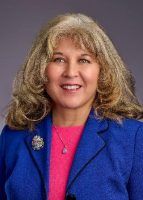Tuesday’s Republican primary election caused a shakeup in Idaho’s school choice debate.
It’s unclear which faction — pro-school choice or anti-voucher — won the election and secured more stable footing roughly seven months away from the next legislative session, when a new school choice bill is almost certain to resurface. And it’s far too early to count votes on a future bill — and not just because there’s one more election in November before the rosters are finalized.
But after an expensive primary in which school choice was the linchpin of several races, both sides traded wins and losses among key players. The losses, in particular, could shift the dynamics of a debate that has historically featured thin vote margins on divisive bills.
Here’s what you need to know:
Key anti-voucher lawmakers lost House races.
A handful of incumbent House members, who have been crucial to blocking bills proposing private school vouchers, education savings accounts or tax credits, won’t be returning to the Statehouse in 2025. Those include:
- Julie Yamamoto, R-Caldwell.
- Greg Lanting, R-Twin Falls.
- Melissa Durrant, R-Kuna.
- Kenny Wroten, R-Nampa.
Yamamoto’s loss is a serious blow to the anti-voucher contingent. The former public school teacher and administrator led the House Education Committee as chairwoman when it rejected a flurry of school choice bills in 2023. This year, GOP leaders diverted school choice bills away from the committee.
Rep. Lori McCann, R-Lewiston, who allied with Yamamoto in opposition to vouchers and ESAs, could ascend from vice chair to chairperson, but it’s too soon to tell.

Durrant and Wroten, meanwhile, both were decisive opponents this year, voting against a bill to create a $50 million tax credit and grant program for private school tuition. The legislation failed to clear the House Revenue and Taxation Committee by one vote.
At least a couple successful challengers to the House incumbents are school choice proponents. That includes Chris Bruce of Kuna, who defeated Durrant; and Kent Marmon, who edged Yamamoto in the Caldwell primary.
Leading school choice proponents fared well in the primary.
Rep. Wendy Horman, R-Idaho Falls and Sen. Lori Den Hartog, R-Meridian — who co-sponsored this year’s tax credit bill, along with other previous school choice proposals — are advancing to the general election as favorites to retake their seats.
While Den Hartog ran unopposed, Horman overcame a pair of high-profile challengers. That included Ammon Mayor Sean Coletti, a staunch opponent of private school subsidies who publicly sparred with Horman over the issue.

Horman, who co-chairs the Legislature’s powerful budget committee, said her victory signals that voters care about school choice. She pointed to a recent public policy survey in which a plurality of respondents said they’d support a program directing tax dollars to private education costs.
“School choice is not a fringe Republican issue,” Horman told Idaho Education News Wednesday. “This is an issue that is at the center of the electorate.”
But the school choice contingent may have lost its most powerful ally Tuesday. Senate President Pro Tem Chuck Winder, R-Boise was defeated in a historic upset by political newcomer Josh Keyser. One consolation is Keyser also appears to be a school choice supporter.
The Senate Education Committee could retain its pro-school choice majority.
Most school choice advocates on the Senate Education Committee — Den Hartog, along with Sens. Cindy Carlson, R-Riggins, Ben Toews, R-Coeur d’Alene, Tammy Nichols, R-Middleton, and Brian Lenney, R-Nampa — are advancing to the general election.
While there’s no assurance the committee will have the same makeup next session, only Sen. Scott Herndon, R-Sagle, will certainly not return. Herndon lost his reelection bid to former Sen. Jim Woodward, who has spoken out against subsidizing private education.

Sen. Dave Lent, R-Idaho Falls, another school choice skeptic who chairs Senate Education, won his primary contest in convincing fashion. If he retains his chairmanship, Lent will again have the authority to block legislation from being heard by the committee.
But GOP leaders in both the Senate and House have shown no qualms about sidestepping a germane committee to find support for a bill elsewhere.
School choice supporters continue to spend heavily on lobbying and campaigning.
The American Federation for Children, a Maryland-based group in favor of expanding school choice, in recent years has been Idaho’s top-spending lobbying group.
And leading up to Tuesday’s election, a political action committee connected to AFC spent more than $300,000 on advertising in support of pro-choice candidates and opposed to anti-voucher incumbents.
AFC targeted Durrant, Wroten and Rep. Rick Cheatum, R-Pocatello, who won his primary. The group backed Horman, Winder and Sen. Julie VanOrden, R-Pingree, who also advanced to the general election.
The Idaho Education Association has emerged as a big spender against school choice.
The teachers’ union this primary cycle sent roughly $90,000 to the political action committee Right 2 Learn, which used the money to attack pro-school choice candidates, particularly Horman, and support anti-voucher candidates.
Mike Journee, IEA’s communications director, told EdNews Wednesday that spending by “billionaire-funded, out-of-state groups,” which “aren’t here to help Idaho kids or Idaho families,” outpaced what union members could contribute. The union opposes school choice programs over concerns they’ll siphon limited funds from public schools.
Looking ahead, IEA’s attacks on Horman could strain its relationship with the Legislature’s doyen of K-12 budget bills. Obviously, Horman wasn’t keen on the union’s electioneering.
“They misrepresented my support for public schools,” she told EdNews, pointing to her three decades of public school service as a volunteer and later school board trustee. “I support all children having the opportunity for an excellent education, wherever that is, and that includes public schools. People in my community know that about me, and they saw through the misinformation.”
Journee, however, said the IEA playbook on school choice won’t change. “Year after year, session after session, IEA members show up to protect public schools from those who want to profit off of their death,” he said. “Next session, and the one after that, will be no different.”
